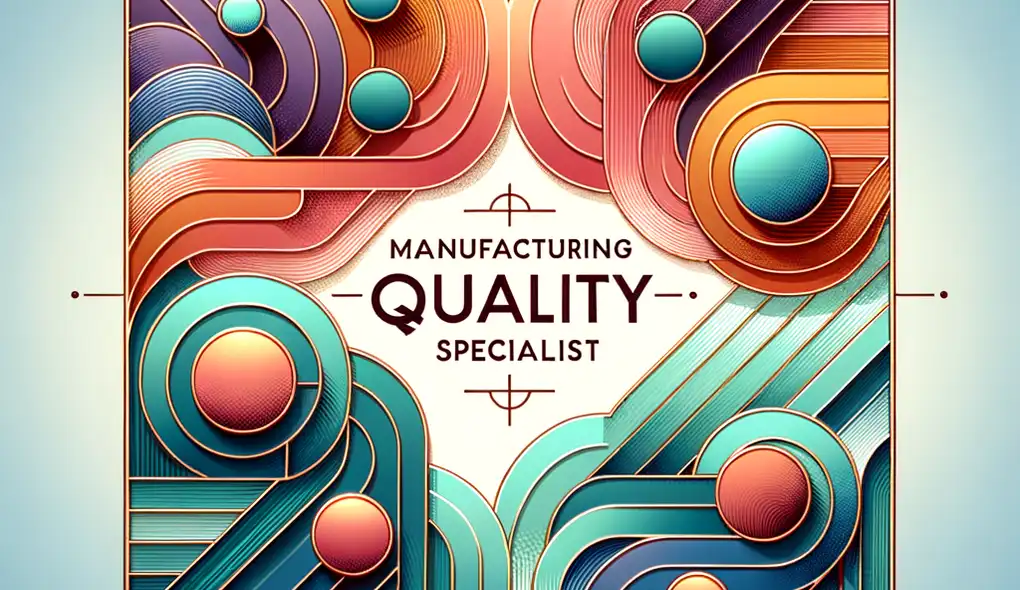How do you approach decision-making when faced with conflicting quality recommendations or guidelines from different industry associations?
Manufacturing Quality Specialist Interview Questions
Sample answer to the question
When faced with conflicting quality recommendations or guidelines from different industry associations, I approach decision-making by conducting a thorough analysis of the recommendations and guidelines. I would carefully consider the context, such as the specific product or process involved, the goals and objectives of my organization, and the relevant regulatory requirements. I would also take into account the reputation and credibility of the associations providing the recommendations. Ultimately, I would seek input from key stakeholders, such as quality assurance personnel, production managers, and subject matter experts. By leveraging their expertise and insights, I can make an informed decision that aligns with the best interests of my organization and ensures the highest level of quality.
A more solid answer
In my previous role as a Quality Assurance Engineer, I encountered conflicting quality recommendations from different industry associations. To make an informed decision, I analyzed the specific requirements and scope of the recommendations. I assessed the credibility and reputation of the associations based on their track record and industry recognition. I also considered the impact of the recommendations on our manufacturing processes and the overall quality of the products. To resolve the conflict, I organized a cross-functional meeting with representatives from quality assurance, production, and engineering departments. We discussed the different perspectives and evaluated the potential risks and benefits of each recommendation. Through collaborative problem-solving, we reached a consensus on the best course of action that aligned with industry standards, regulatory requirements, and our organization's quality goals.
Why this is a more solid answer:
The solid answer provides specific details about how the candidate has applied their analytical skills, problem-solving abilities, and knowledge of quality standards and regulations in a similar situation in the past. It also highlights the candidate's ability to work both independently and in a team environment, as well as their communication skills in collaborating with stakeholders. The answer could be further improved by mentioning any tangible results or positive outcomes that were achieved as a result of the decision-making process.
An exceptional answer
When faced with conflicting quality recommendations or guidelines from different industry associations, I approach decision-making by following a systematic framework. Firstly, I thoroughly research and evaluate the background, reputation, and expertise of the associations providing the recommendations. This helps me gauge their credibility and validity. Secondly, I carefully examine the specific requirements and context of the conflicting recommendations, taking into account factors such as the nature of the product, regulatory compliance, and customer expectations. Next, I leverage my deep understanding of industry-related quality standards and regulations to assess the potential impact and risks associated with each recommendation. I also consider the long-term implications and alignment with our organization's quality objectives. To reach a well-informed decision, I collaborate with cross-functional teams, including quality assurance, engineering, and production. By fostering open dialogue and encouraging diverse perspectives, we collectively evaluate the pros and cons of each recommendation. This collaborative approach ensures that we arrive at a consensus that balances regulatory compliance, customer satisfaction, and operational efficiency. Lastly, I document the decision-making process and rationale to create a transparent record for future reference and continuous improvement.
Why this is an exceptional answer:
The exceptional answer demonstrates a comprehensive approach to decision-making, incorporating research, evaluation, analysis, collaboration, and documentation. The candidate showcases their ability to thoroughly research and evaluate the credibility of industry associations. They also emphasize their deep understanding of industry-related quality standards and regulations, highlighting their expertise in assessing the potential impact and risks. The answer further demonstrates the candidate's effective collaboration skills by involving cross-functional teams and fostering open dialogue. Lastly, the candidate recognizes the importance of documentation for transparency and continuous improvement. This answer could be further enhanced by providing specific examples or quantifiable outcomes that illustrate the candidate's success in resolving conflicting quality recommendations in the past.
How to prepare for this question
- Familiarize yourself with industry-related quality standards and regulations. Stay updated on the latest guidelines from reputable sources.
- Develop a systematic approach to decision-making by considering various factors such as regulatory compliance, customer expectations, and organizational objectives.
- Practice analyzing conflicting recommendations and evaluating their potential impact and risks.
- Improve your collaboration and communication skills to effectively work with cross-functional teams.
- Develop documentation and record-keeping habits to maintain a transparent decision-making process.
What interviewers are evaluating
- Analytical skills
- Problem-solving abilities
- Knowledge of industry-related quality standards and regulations
- Ability to work independently and in a team environment
- Communication skills
Related Interview Questions
More questions for Manufacturing Quality Specialist interviews